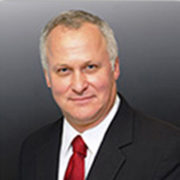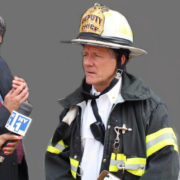Croker Risk Management Services
Croker Risk Management is a full-service provider of planning, training and exercises for emergency response, crisis management and business continuity. Through our advanced and interactive programs, Croker Risk Management has become a leader in developing programs for corporate preparedness and commercial real estate resilience.
Learn More About
Croker Risk Management Services is a full-service provider of planning, training and exercises for emergency response, crisis management and business continuity. Our core competencies include:
Members of Croker Risk Management’s core consortium include preparedness professionals who have developed plans at the tactical, operational and strategic levels. The core team has had over 100 years combined experience in emergency response, crisis management, business continuity, and strategic decision-making. Many members of the team have had the experience of implementing the plans they developed. Our members understand the nuances of preparedness planning and never forget the needs of our clients or the realities of emergency preparedness.

What Makes Croker Risk Management Different?
We provide services based on three (3) core tenets:
Philosophy
Croker Risk Management’s philosophy is simple: plans are most effective when developed with organizational participation. Our integrated planning programs involve a step-by-step facilitated process of workshops, seminars and exercises resulting in plans that are realistic, functional and understandable.
Why Choose Croker Risk Management?
Integrity
Our integrity is our foundation. We accurately state our capabilities, qualifications and experience. We deliver what we promise.
Experience
Croker Risk Management’s core team has over 100 years of collective experience in emergency preparedness, life safety, law enforcement, exercise development and delivery, strategic coaching and corporate incident management program development and maintenance.
Program Management
Our team is skilled in program management and will keep your program on schedule and deliver products on time. We work directly with your staff for program scheduling and administrative needs, thereby reducing your organizational administrative burden.
Value
We offer extremely competitive rates. Our firm-fixed pricing model includes all aspects of project support. This pricing method provides our clients the confidence that we are available whenever needed, without any additional or “hidden” fees.
Useful Products
Croker Risk Management provides thoughtful and useful products and services specifically tailored to your organization’s needs. We use the most current processes, we do not take short-cuts and we do not use “cookie-cutter” templates.

What Can Croker Risk Management Do for Me?
Examples of Past and Continuing Projects:

Walter F. Ulmer III, MBCP
Executive Director, Risk Management Services

Walter F. Ulmer III, MBCP, has over 35 years national and international emergency preparedness planning, education and exercise development experience. He has developed response, crisis management and business continuity plans and training programs for facilities, local jurisdictions, financial investment firms, health departments, colleges and universities, pharmaceutical corporations, law firms, commercial real estate corporations and security service companies.
Prior to his retirement from the United States Army as a lieutenant colonel, Mr. Ulmer was the Associate Dean of Administration and Resources for the George C. Marshall European Center for Security Studies, a bi-lateral United States-German higher education institution that educates former Soviet Union and Warsaw Pact officials on the tenets of democracy. In this position Mr. Ulmer helped develop graduate-level curricula for crisis management and emergency response programs for international military and civilian officials and was the academic support representative for the Center’s Distance Learning Program. Upon his retirement, he was selected to be the Director of Administration in Georgetown University’s School of Foreign Service, a position he occupied on September 11, 2001.
Mr. Ulmer has been a certified instructor for the United States Department of Homeland Security, teaching in its Executive Management Programs, which included workshops for executive-level emergency management, public health, law enforcement, fire and life safety, and elected and appointed officials throughout the United States.
Mr. Ulmer has been an active member of the New York City Building Owners and Managers Association (BOMA) Preparedness Committee where he completed numerous initiatives, including a study on best practices in hi-rise emergency preparedness planning in metropolitan areas (2005); chairing a task force which developed strategies to mitigate the potential impacts of a flu pandemic on the commercial real estate industry (2006); chairing a task force which developed the BOMA Hi-Rise Drill Book, a series of drills designed to increase preparedness in hi-rise building staffs (2008); and was the primary author of the BOMA/NY “Hurricane Sandy Lessons Learned Study” (2013). In 2010, Mr. Ulmer received the “Pinnacle Award” in recognition as BOMA/NY’s Outstanding Local Member of the Year, for his contributions to commercial real estate preparedness. Mr. Ulmer continues to be an active advocate for business resilience and for developing realistic, workable and affordable emergency preparedness, crisis management and business continuity solutions for clients worldwide.
Ulmer is a frequent contributor on topics involving emergency preparedness in general and high rise buildings in particular. He holds a bachelor’s degree in engineering from the United States Military Academy at West Point, a Master’s of Science in Administration from Central Michigan University, has graduated from Harvard University’s School of Higher Education Management Development Program and attended the inaugural MIT program on crisis management and business continuity.
Michael Nigro
Associate Director, Risk Management Services

Michael Nigro is a retired FDNY captain with over 25 years of experience, specializing in enhanced organizational training, exercise design and delivery. His tenure with the FDNY included an assignment as a member of the exercise design team with the New York City Fire Department Center for Terrorism and Disaster Preparedness (CTDP).
Prior to his service with FDNY, Nigro served actively in the United States Navy and is a retired US Navy reserve chief petty officer. He has extensive credentials, including Homeland Security Exercise and Evaluation Program (HSEEP) certification from the NYC Fire Academy and is a Master Exercise Practitioner (MEP), certified by the National Fire Academy, Emergency Management Institute in Emmitsburg, Maryland. Michael Nigro received a Bachelor of Arts degree in Fire and Emergency Services from John Jay College of Criminal Justice.
Michael Nigro has focused his experience with developing and delivering enhanced training programs for both staffs and tenants in commercial high-rise office buildings. Most recently, he has developed training programs for residential high-rise buildings, which provide training for both residents and residential building staffs on fire safety. Nigro’s broader portfolio includes developing enhanced planning and training programs for both public and private facilities, including New York State’s largest convention center, New York City’s new train station, commercial office building campuses, museums and theaters.
Jim Hodgens
Director, Program Development

Retired Assistant Chief James Hodgens was a member of the FDNY for 38 years. Upon joining the New York City Fire Department as a Firefighter in 1981, to his most recent assignment as the Chief of Training for the FDNY, Hodgens served the Department and the citizens of New York in various roles throughout his career. While overseeing the FDNY’s Bureau of Training, Chief Hodgens was tasked with the responsibility for ensuring that all Firefighters and Emergency Medical Services (EMS) personnel were trained to the highest standards and prepared to save the lives of New Yorkers.
Chief Hodgens has served on several committees representing the FDNY and the City of New York for both Emergency Planning and Preparedness as well as Code Compliance. As a member of the Building Owners and Managers Association (BOMA) Preparedness Committee, Hodgens assisted in formulating a drill manual for high-rise buildings and building staff. Similarly, Hodgens served on the International Code Council (ICC) “Means of Egress Committee” in 2007 and 2010. This committee votes on key issues pertaining to both firefighter and occupant safety regarding egress from all buildings on an international, national and local level. Chief Hodgens also served as an instructor at the FDNY Battalion Chief’s Command Course in High Rise Operations and the newly adopted Building Inspection Safety Program (BISP). In 2012, Hodgens was recipient of the FLSDA Edward W. Whalen Memorial Award, which is presented annually to one member of the Fire Department of the City of New York (active or retired) who has furthered the goals of fire prevention, safety and education in the field of fire protection.
James Hodgens received his undergraduate degree from the University of Rhode Island with a Bachelor’s Degree in Psychology. He spent a year working on his Master’s Degree in School Psychology at the University of Bridgeport. Hodgens is a graduate of the FDNY West Point Joint Counter-Terrorism Training Initiative, the FDNY Columbia University Fire Officer’s Management Institute. In addition, Hodgens received a Certificate for Leadership from the Naval Post Graduate Program in Monterey, California.
Croker Risk Management uses best-practice standards in its training and exercises, including the Department of Homeland Security (DHS) Homeland Security Exercise and Evaluation Program (HSEEP), American Society for Industrial Security (ASIS), National Fire Protection Association (NFPA) and Disaster Recovery Institute International (DRII).
We can provide a single event or a full-range of events that supports the spectrum of your business operations and needs. Some of the more common services include seminars, working groups, and exercises. We would be happy to discuss how one or all of these may assist you in enhancing your preparedness.
SEMINARS
Seminars orient participants to, or provide an overview of, authorities, strategies, plans, policies, procedures, protocols, resources, concepts, and ideas. They also provide a good starting point for entities that are developing or making major changes to existing plans or procedures. Seminars are also useful when attempting to gain awareness of, or assess, the capabilities of interagency or inter-jurisdictional operations. Seminars are useful whenever there is a need to provide a common framework of understanding. Seminars are the basic building block of exercise development.
Seminars can be used to deliver a wide range of topics.
Although the topics may vary, all seminars share the following common attributes:
WORKING GROUPS
A Working Group, or workshop, differs from a seminar in two key aspects:
Working groups provide an ideal forum for:
Products developed via a working group may include Standard Operating Procedures (SOP’s), Emergency Action Plans (EAP’s), plan reviews or revisions, communications plans, alert and activation checklists, or other products related to an organization’s needs.
EXERCISES
Tabletop Exercise:
Method most often used to rehearse emergency/crisis teams in which participants review and discuss the actions they would take according to their plans. Participants do not perform emergency/crisis actions but walk-through plans, procedures, and protocols during this discussion-based exercise. Tabletop exercises can be conducted with a single team or multiple teams.
Functional Exercise:
The functional exercise simulates an emergency/crisis in the most realistic manner possible, short of moving real people and equipment to an actual site. Its goal is to evaluate the capabilities in the context of an emergency event.

Once clients experience Croker Risk Management’s approach to commercial office building preparedness, they are hooked; they realize that it is the preferred way to develop building staff competence and engage tenants. Let’s start with an example question:
Who are the first responders during an incident which impacts a commercial high-rise office building?
A. Fire
B. Police
C. Emergency Medical Services
The answer? D: None of the above.
In fact, it is the tenants and the building staff that will make the immediate, and perhaps most important decisions during the first few moments of an incident. In today’s world, it is the tenants and building staff that are truly the building’s “first responders.”
It is with this “from the inside-out” perspective that Croker Risk Management develops its commercial office building preparedness programs. Unlike most commercial high-rise fire and life safety vendors, Croker Risk Management’s team has backgrounds in multiple disciplines: law enforcement, fire and life safety, exercise development and delivery and building operations. Most importantly, members of Croker Risk Management’s team have been tenants in commercial high-rise buildings during incidents and understand the various emotions associated with an incident which impacts their office space.
Through its cutting-edge programs, Croker Risk Management has become a thought-leader in the commercial office building preparedness arena. Croker Risk Management develops hands-on, tailored, workable and cost-effective programs beginning with the tenant and building staff points of view, understanding that during the first few minutes of an incident which impacts a building, the tenants and building staff are on their own.

Contact Croker today at 212-748-3500 for all of your Risk Management needs.
© 2025 Croker Fire Drill Corporation / Croker Fire Safety Corporation / Croker Fire & Life Safety Institute. All Rights Reserved.